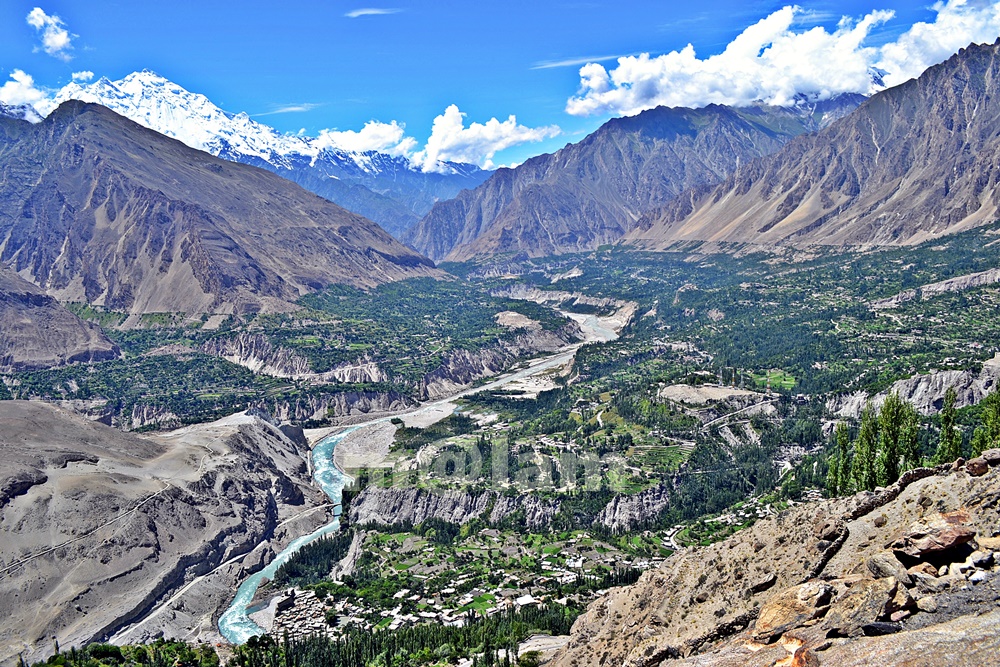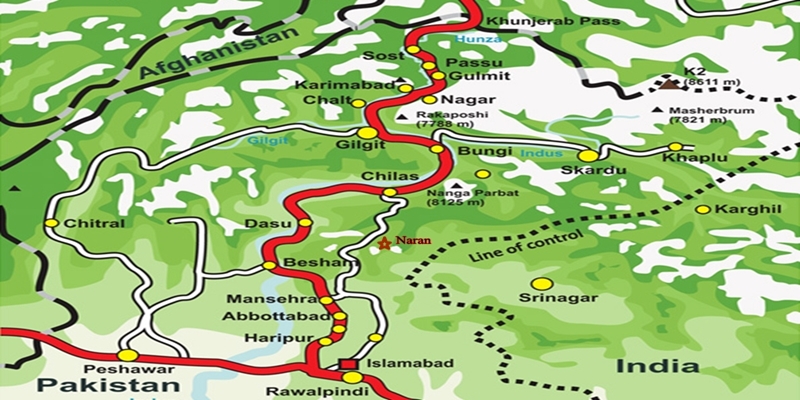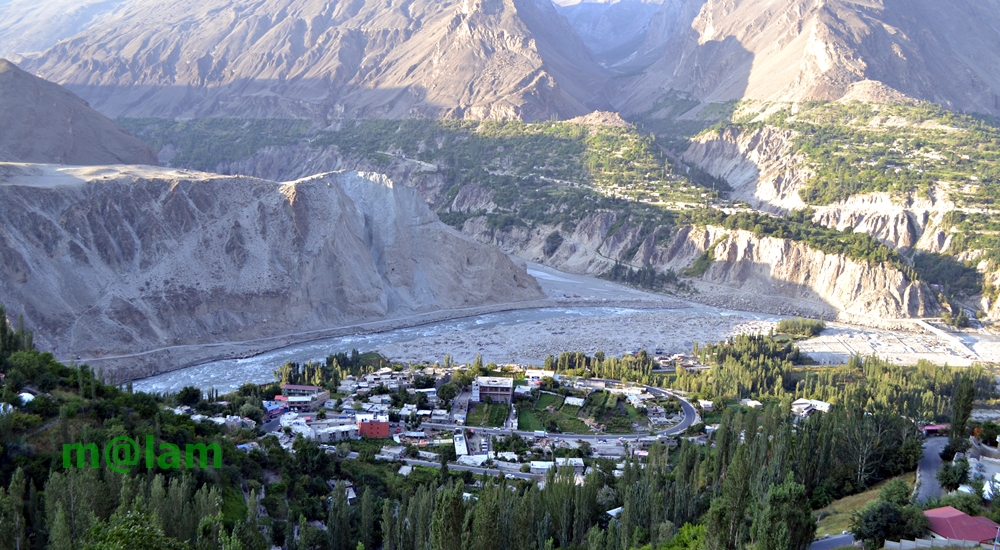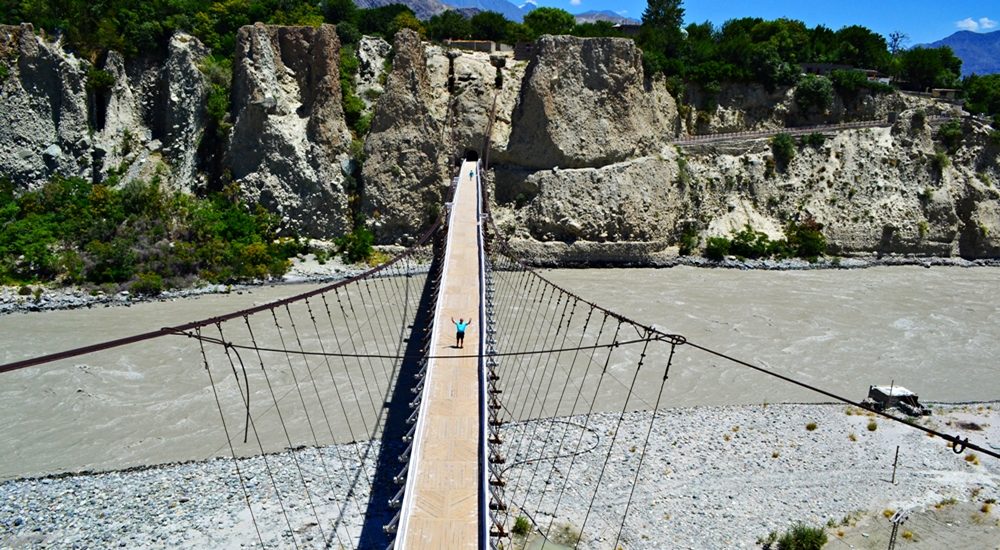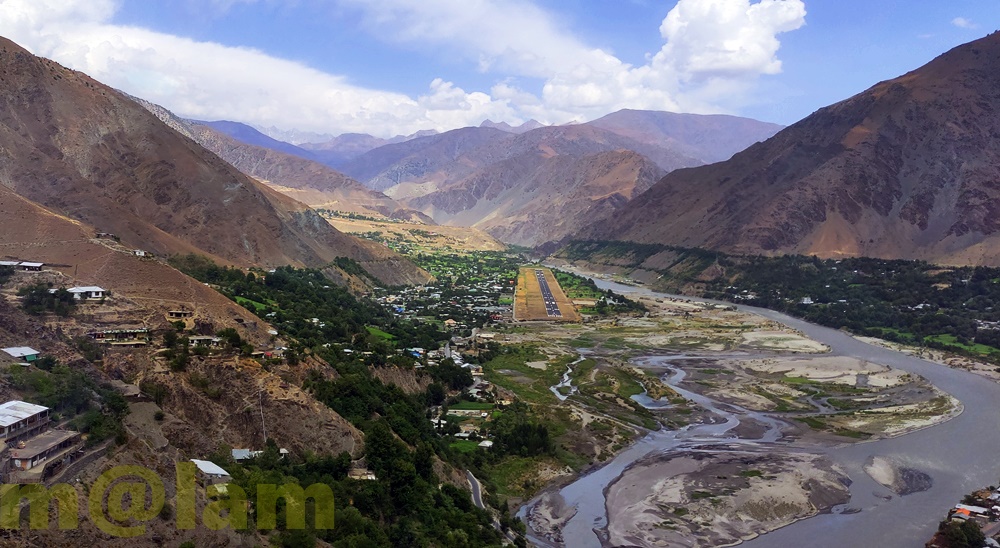The Hunza Valley – A Place Beyond Words
Welcome to The Hunza Valley, a Majestic Gem of Nature’s Grandeur – a place where nature’s beauty meets cultural heritage. Nestled in the heart of the mighty Karakoram Mountains, this remote valley is a hidden gem waiting to be explored. The words may fall short of capturing the true essence of The Hunza Valley. It is a place that needs to be experienced firsthand, where the mountains whisper ancient tales, and the valleys echo with the laughter of the locals. The serenity, the adventure, and the warmth of the people combine to create an unparalleled experience that will stay with you long after you leave. From its awe-inspiring landscapes to the warm hospitality of its people, the Hunza Valley offers a truly extraordinary experience that will leave you mesmerized.
The Majestic Karakoram Range
At the heart of The Hunza Valley lies the magnificent Karakoram Range. Towering peaks, snow-capped mountains, and sprawling glaciers adorn the landscape, creating a sight that will take your breath away. The Karakoram Range is home to some of the highest peaks in the world. Notable mountain peaks include K2, the second-highest mountain on earth, Broad Peak, and Gashabrum Peaks. Explore the stunning beauty of these majestic giants and immerse yourself in the grandeur of nature.
Cultural Heritage and Warm Hospitality
The Hunza Valley is steeped in rich cultural heritage. The local communities have preserved their traditions for centuries, and their warm hospitality will make you feel right at home. Engage with the locals, learn about their customs and traditions, and savor the flavors of their delectable cuisine. Immerse yourself in their vibrant festivals and witness the traditional dances that reflect the valley’s vibrant spirit.
Traditional Music & Rituals
Hunza is known for its rich cultural heritage, including traditional music and rituals. The people of Hunza have a distinct cultural identity, and their music and rituals are an integral part of their social and religious practices. Music holds a significant place in Hunza’s cultural traditions. In addition to their music, the people of Hunza have various rituals and celebrations that hold cultural and religious significance. Some of the notable rituals and celebrations include Ginani, Nasalo, Bofao, Nawruz, Salgirah of Imam e Zaman, Shab e Barat, Shab e Meraj, Eid Gadeer, Eid ul Fitr, and Eid ul Adha.
Traditional Cuisine
The valley is also famous for its delectable cuisine, featuring a variety of local dishes such as Chapshuro, Gurey Fiti, Makaye Fiti, Makaye Faqo, Burus Shapik, Giyaling, Hamao Giyaling, Hoi Lo Garma, Diram Fiti, Batering Dawdo, Buqpa Dawdo, Chap tze Dawdo, Haniye Del (Apricot Oil), Hani tze Dawdo, Hani tze Chamic (Apricot Sauce), Harisa, Sharbat, Mulida, Shopan, Chhamus, and apricot-based desserts. The organic produce grown in the region, including cherries, apricots, and almonds, adds to the culinary delights of the valley. The Kha Basi Café on the premises of Altit Fort, Café De Hunza at Karimabad, Mulberry Hotel, Darbar Hotel, and Hidden Paradise offer a great taste of traditional food.
Fruits of the Hunza Valley
The journey of fruits in Hunza begins with cherries in May after the blossom season concludes in April and varieties of fresh fruits remain available until November. During winter, a variety of dry fruits and byproducts made of dry fruits are available in the market. Seasonal fruits include black, red, and white Cherries in May and June; Plum, Figs, and a variety of Apricots in June and July; Apples in July & August, a variety of grapes in August and September, Peach in September and October, and Japanese fruit in November.
Outdoor Activities
Exploring the Hunza Valley offers numerous outdoor activities for adventure enthusiasts. Visitors can embark on a thrilling trek to Ultar, hike up to Duikar from Karimabad or Altit, walk along the Hunza water channel or to viewpoints for panoramic vistas, go rock climbing, indulge in mountain biking, Paragliding from Duikar, or walk surrounding valleys. There are other exciting options including a trip to upper Hunza which covers the beautiful road trip to Khunjerab Pass, Rainbow Bridge Photography, a day hike towards Batura Glacier, visiting Borith Lake and walk up to the glacier, a day hike from Borith to Husseni village, Husseni Suspension Bridge crossing & Zip Line experience, hike up to Ondgra Poyga, explore Shishkat valley, boating at Attabad Lake, and visiting the magnificent Hoper Valley. The Karakoram Highway, which passes through the valley, provides an adventurous road trip experience with stunning vistas at every turn.
Shopping in Hunza
Karimabad, also known as Baltit, is the main bustling market with various shops, stalls, and local vendors selling a wide range of items in Hunza. Exquisite handicrafts such as carpets, rugs, embroidered textiles, traditional caps, shawls, and wooden carvings make for great souvenirs or gifts. Hunza is also famous for its gemstones and jewelry displayed in a variety of gemstone stores offering precious and semi-precious stones like turquoise, garnet, topaz, and more. Additionally, unique jewelry pieces inspired by the local culture are also seen on display. Moreover, delicious dried fruits, nuts, and apricot products including dried apricots, apricot oil, apricot jams, and apricot-based sweets like Hunza halwa. These local delicacies are a must-try and can be found in many shops. Similarly, traditional clothing such as embroidered shirts, woolen waistcoats, caps, gowns, and shawls featuring local craftsmanship and the cultural heritage of the region is easy to find in the market.
Seasonal Attractions
Blossoming Orchards

The Hunza Valley is renowned for its vibrant orchards. As spring arrives, the valley transforms into a breathtaking paradise with the blooming of cherry, apricot, peach, and pear trees. The delicate pink and white blossoms create a picturesque scene, attracting visitors from far and wide. Take a leisurely stroll through the orchards, breathe in the sweet fragrance, and witness nature’s exquisite artistry unfold before your eyes.
A Great Summer Retreat

Certainly! The Hunza Valley is a breathtaking summer retreat. During the summer months, the Hunza Valley transforms into a paradise for travelers seeking respite from the scorching heat. The valley is adorned with lush green fields, vibrant flowers, and crystal-clear streams, creating a picturesque landscape that is sure to leave visitors mesmerized. One of the highlights of a trip to the Hunza Valley is witnessing the majestic snow-capped peaks that surround the region, including Rakaposhi, Ultar Sar, and Ladyfinger Peak. These towering mountains provide a stunning backdrop for adventurers and nature enthusiasts alike.
Vibrant Autumn Colors

The Hunza Valley in Pakistan is renowned for its stunning autumn colors. During this season, the valley comes alive with a vibrant display of colors, transforming the landscape into a picturesque paradise. As the summer transitions into autumn, the foliage of the trees in the entire Hunza Valley undergoes a remarkable transformation. The lush green leaves gradually transition into various shades of gold, orange, and red, creating a breathtaking mosaic of colors. The majestic peaks of the surrounding mountains serve as a striking backdrop to this natural spectacle.
Tranquil winter in Hunza
During winter, Hunza offers a unique and enchanting experience. The Hunza Valley transforms into a winter wonderland with its snow-covered mountains, valleys, and villages. The stunning beauty of the snow-capped peaks, frozen lakes, and glistening landscapes is a sight to behold. Hunza offers excellent opportunities for skiing snowboarding and ice skating. Some frozen lakes or designated areas provide opportunities for ice skating. It’s a fun activity for individuals and families alike, allowing you to enjoy the winter atmosphere while engaging in a recreational sport. The people of Hunza celebrate various winter festivals that showcase the local culture, music, dance, and traditional customs. Attend these festivals to immerse yourself in the vibrant traditions of the region.
Historic Monuments
Altit Fort and Baltit Fort
Standing as proud sentinels overlooking the valley are the Altit Fort and Baltit Fort. These ancient fortresses, dating back to the 11th century, offer a glimpse into the region’s history and architectural marvels. Explore the intricate designs, intricate woodwork, and mesmerizing views from the forts, and transport yourself back in time to an era of kings and warriors.
Duiker Sunrise & Sunset Point
Duiker Sunrise and Sunset Point is a popular tourist spot located in the Hunza Valley providing a bird’s eye view of the entire Hunza and Nagar Valleys guarded by seven towering mountain peaks. Situated at an elevation of around 9,000 feet, Duikar provides an ideal vantage point to witness mesmerizing sunrises and sunsets. The beauty of the golden rays illuminating the snow-capped peaks is a sight to behold. Visiting Duikar during sunrise or sunset is a magical experience. As the sun slowly rises or sets behind the towering mountains, the colors in the sky transform, creating a picturesque panorama. The surrounding landscape, with its terraced fields and traditional villages, adds to the charm of the place.
Ganish 1000 years old settlement
The Ganish village in Hunza is believed to have been established around the 10th century AD, making it one of the oldest continuously inhabited settlements in the region. Ganish is renowned for its ancient architecture, particularly its well-preserved stone houses, and mosques. The traditional buildings in Ganish are constructed with local materials, such as stone and wood, showcasing the skill and craftsmanship of the people who lived there centuries ago. These structures serve as a testament to the longevity of the settlement.
Attabad Lake
One of the most stunning attractions in Hunza is Attabad Lake. Created in 2010 due to a natural disaster, this turquoise gem stretches for miles, surrounded by towering mountains. Take a boat ride across the tranquil waters, soak in the serene ambiance, and marvel at the beauty of nature’s resilience.
Frequently Asked Questions about The Hunza Valley
What is the best time to visit?
The best time to visit the Hunza Valley is during the spring and autumn season. It’s the time when the weather is pleasant, and the landscapes are adorned with vibrant colors. Summers are flooded with local tourists while winters are harsh yet active because of rituals and celebrations. Winter sports are now becoming a popular trend in Gilgit-Baltistan in general and in Hunza in particular.
Are there any trekking opportunities?
Yes, Hunza Valley offers a range of trekking opportunities for adventure enthusiasts. From short hikes to challenging mountain treks, there is something for everyone.
Is The Hunza Valley safe for travelers?
The Hunza Valley is considered safe for travelers. The local communities are welcoming, and the valley has a low crime rate. However, it is always advisable to take necessary precautions and follow local guidelines.
What are the must-visit attractions?
Some of the must-visit attractions in The Hunza Valley include Altit and Baltit Forts, Attabad Lake, Karimabad Bazaar, and the scenic viewpoints along the Karakoram Highway.
Can I experience the local culture?
Yes, The Hunza Valley offers ample opportunities to experience the local culture. Engage with the locals, attend festivals, taste the traditional cuisine, and explore the local markets to get a glimpse of the vibrant cultural heritage.
How can I reach Hunza?
Hunza is accessible by road from major cities in Pakistan. The nearest airport is Gilgit Airport, and regular flights operate from Islamabad to Gilgit. One can also fly to Skardu and drive onwards to Hunza at the same time. International travelers can enter Hunza Valley via Khunjerab Pass from China.
In the enchanting embrace of The Hunza Valley, nature’s magnificence intertwines with cultural heritage to create an unforgettable experience. The majestic Karakoram Range, the blooming apricot orchards, the warm hospitality of the locals, and the ancient forts stand as testaments to the valley’s allure. Whether you seek adventure, tranquility, or a deeper connection with nature, The Hunza Valley beckons you to embark on a journey of a lifetime.



